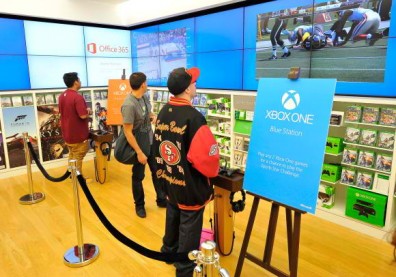Thanks to a joint investigation carried out between The Guardian, New York Times, and ProPublica, with leaked documents from the infamous whistleblower Eric Snowden, it's been confirmed that the NSA knows no bounds when scouring cyberspace for evil doers, having had its eye on players in everything from Xbox Live, Second Life, World of Warcraft, and more.
Games were monitored because of their ability to reach a wide age demographic across multiple genders and backgrounds, and for being the "preeminent form of entertainment" in said groups. No doubt the NSA was pissed when Microsoft decided that gamers could turn off the Kinect in the Xbox One.
If you bother to wade through this document expecting to read about daring raids on a Hezbollah operation that fronted as a tavern in Azeroth, you're going to be sorely disappointed.
Over a quarter of the way through the report (or the rest of it for that matter), no instance of obtaining information or observing suspect action is ever mentioned. Here's the glaring phrase on the bottom of page 27 in bolded, italicized, capital letters - "THE SCENARIOS PRESENTED IN THIS PAPER ARE FICTITIOUS" In actuality, the document actually works against itself by coming up with and presenting ways in which groups can use the games to cause harm.
But the thing is, is that in the entire 82 page report, "Games: A Look at Emerging Trends, Uses, Threats and Opportunities in Influence Activities," there's not a single mention where any game was used to either succesfully attain some kind of usable information, arrest, or even if any terrorist activity or conversation was actually observed, in any specific game.
Essenatially, it's a lengthy justification that says, "we're going to do this, and here's why." That's it.
The most damning information is the following excerpt: "Al-Qaida terrorist target selectors and ... have been found associated with XboxLive, Second Life, World of Warcraft, and other GVEs [Games and Virtual Environments]. Other targets include Chinese hackers, an Iranian nuclear scientist, Hizballah, and Hamas members," but it's ultimately inconclusive. "Associated" is a far more blanket term than, say, "using the service to communicate over an upcoming operation." In all liklihood, given the study's own admission that games are growing in popularity in all regions of the country, they were probably having it out over a game of FIFA. Probably not a lot of Madden fans in the middle east.
Looking back, I wonder if that means it was someone from Al-Qaeda who griefed my castle in Minecraft...
Granted, there are a few interesting points here, but nothing we haven't heard before.
For example, the report claims that some games are used as simulations, and "offer realistic weapons training...(military operations and tactics)" or that they can be used as tools of propaganda.
"When the mission is expensive, risky or dangerous, it is often a wiser idea to exercise virtually, rather than really blow an operative up assembling a bomb or exposing a sleeper agent to law enforcement scrutiny. Militaries around the world use virtual simulators with great success and the Hizballah even hooked up a PlayStation controller to a laptop in order to guide some of its real missiles."
To be fair, I wonder where they got that idea from...
It's generally assumed that clandestine groups have always been doing things like this, but it's still a bit of a shock when it is confirmed. I'd argue that the majority of the people that do play online, in the same sort of games that the NSA has been monitoring, do it simply to play. They're not funneling arms from a WoW gold farm, secretly communicating in some obscure language through Xbox Live (and if they did, it's probably because the PlayStation Network was down). Does it justify an organization snooping on a bunch of players who are just trying to enjoy a game?
If it doesn't result in anything, no arrest, no intelligence, then no, ultimately it proves that the entire time spent in all these various games was a waste of both time and taxpayer money. And ultimately, it seems like that's the case here.










